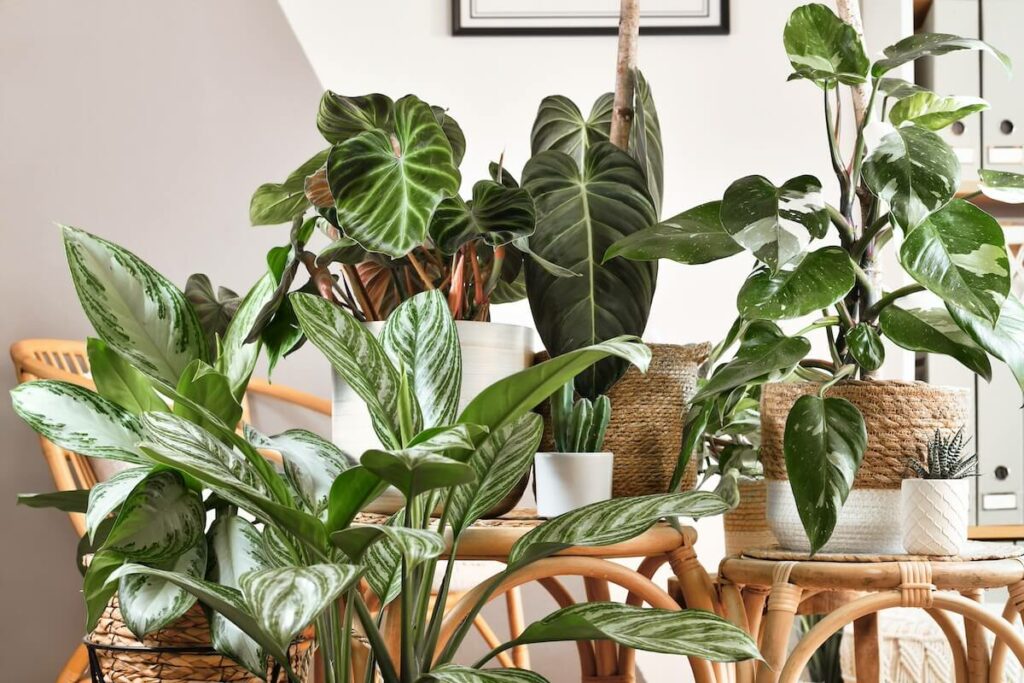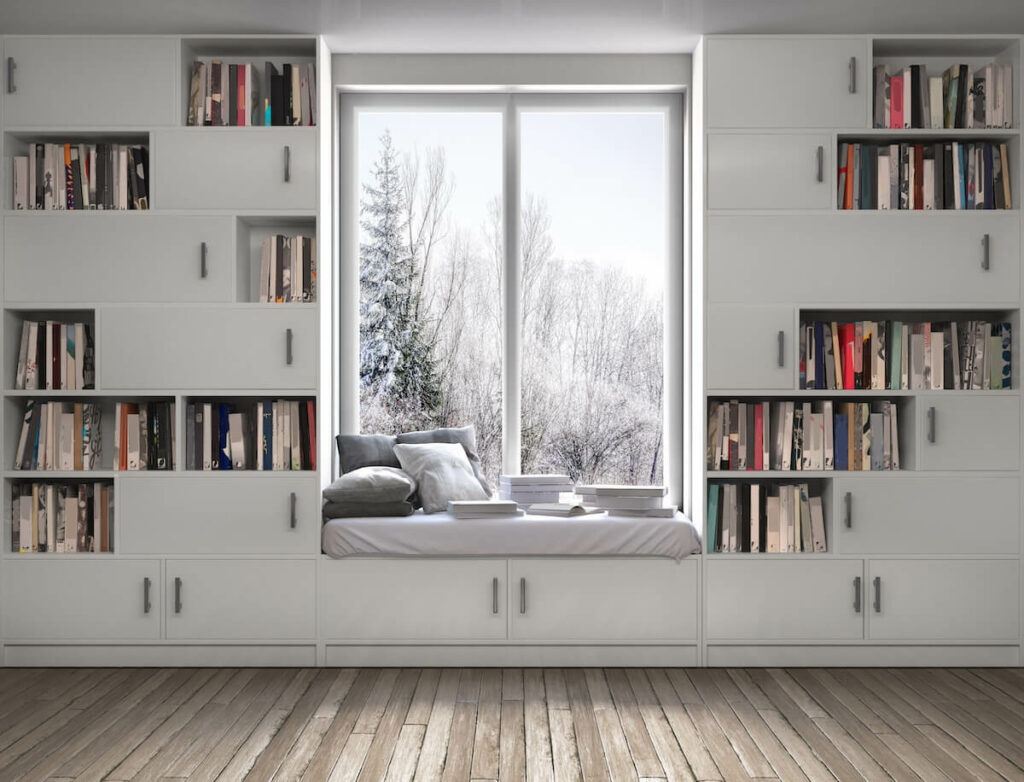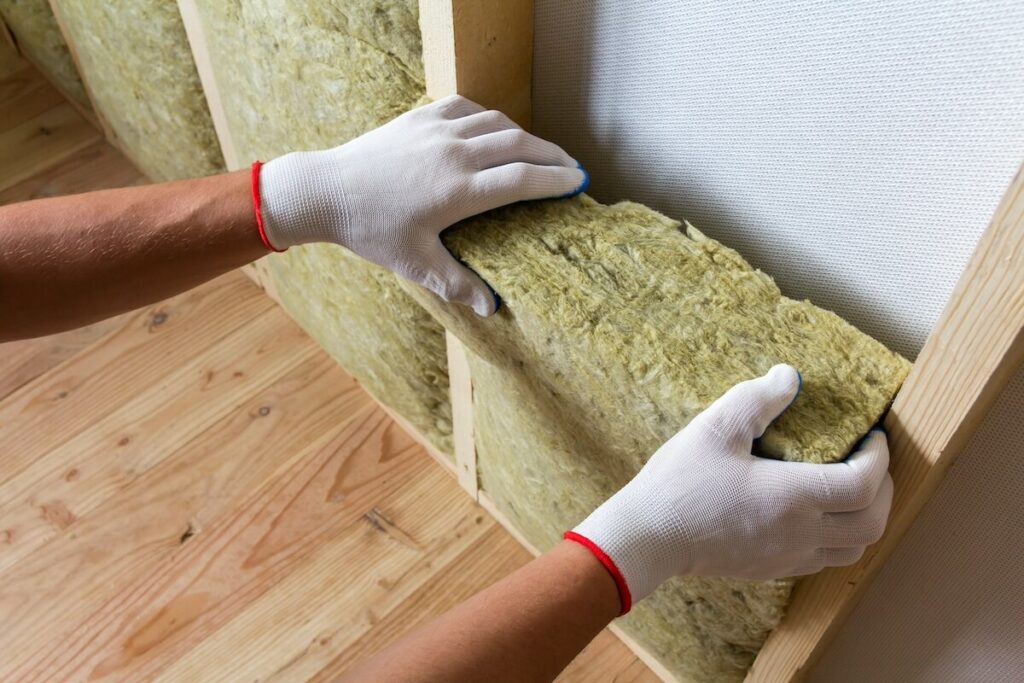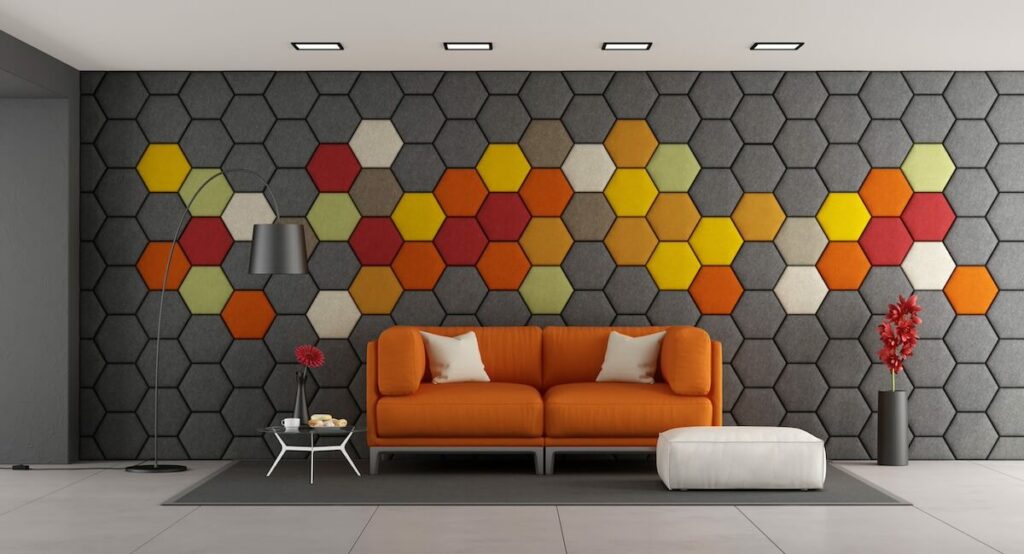In our last post, we answered some of the most commonly asked questions about soundproofing to help you decide if it’s worth doing in your home. If you’ve decided that this is a task worth your time, we thought we’d also share some suggestions on the best ways to go about it.
We’ll cover a couple of simple, cost-effective ways you can insulate your home against sound, as well as the more extreme but effective options.
What easy ways are there to improve the soundproofing of your home?
Reducing the noise pollution in your home doesn’t have to mean disruptive or expensive changes. There are smaller, more manageable steps you can take too. They may not make massive reductions to your noise pollution but they will make some difference.
 Indoor plants
Indoor plants
This is a small change and, we’ll be honest, won’t make a massive difference on its own. However, bringing a few lush green plants into your living space will perform some sound dampening, absorbing sound waves while also improving the air quality and feel of your home. It’s not going to do a lot, but it’s a nice option that comes with plenty of other benefits.
Window film
Applying a specialist window film can give your window panes a cheap soundproofing boost if you can’t afford to replace the glazing completely. As a cut-price option, it can be better than nothing and can improve the energy efficiency of your windows as well. However, it can be fiddly to fit and the difference it makes might not be big.
Get acoustic curtains
If you’re adding window film to your windows, another sensible step is to add a sound-dampening window dressing. You can buy curtains specifically designed to improve the insulation of your home, both sound and energy, as well as blinds or shutters if you prefer. They can even be hung behind doors.
If your window is a big weakness in your soundproofing, this can be the most straightforward way to protect it. Of course, when the window dressing is open, the benefit will be lost, and you’ll never get as much of an improvement as you would from glazing.
Add more soft furnishings
Curtains aren’t the only soft furnishings that can help deaden the sound in your home. If you have wood, tile or laminate floors, laying down rugs will absorb noise instead of leaving it to reflect off hard floors.
Sofas and upholstered chairs can also help a little with absorbing sound. Wall hangings will make a small difference to the sound coming through walls on their own but you can also use them to hide thicker, more specialised sound insulation panels without worrying about refinishing a wall over it too.
Reseal your window and door frames
Already got double glazing that doesn’t appear to be showing signs of failing but still struggling with a lot of external noise getting through your windows? The panes themselves aren’t the only way that noise can enter your home – it can come in around the edges too.
Resealing your windows is a lot cheaper and easier than replacing your glazing units so it’s a good place to start if you think your windows are letting in noise. You can even buy acoustic caulk that will absorb more noise than standard caulk to further increase the sound insulation of your windows or doors.
Rearrange the furniture
Rather than cluttering your home with more ‘things’ to dampen sounds, you can make the most of what you have. Place bigger, bulkier items like bookshelves and wardrobes against the walls where sound pollution is a problem, and they will absorb some of the noise.
 What are the most effective ways to reduce noise pollution?
What are the most effective ways to reduce noise pollution?
If intrusive noise is really affecting your living space, there are more heavy-duty ways to improve the sound insulation of your home. These methods are both more expensive and more work to put in place but this is balanced by making a far bigger impact.
As sound insulation will often improve the heat insulation of your home too, you may even make up some of your expenditure through lowered heating bills – another bonus if you’re ready to fit more significant improvements.
New double glazing
If you’re struggling with a lot of traffic or other external noise getting into your home, it’s time to check your glazing. When the seals in your double-glazed units start to fail, you won’t just start to lose the heat-insulating properties – their soundproofing ability will be compromised. And that’s if you’ve already got double-glazed windows – if you’ve only got single-glazed windows, then their soundproofing will be minimal.
New double-glazed window units can reduce noise pollution by up to 35db. This is a big difference when it comes to disruptive street noise in your home. If your windows are old, tired, and showing signs of condensation inside, it might be time to consider replacing them – the sound and heat insulation new windows will provide will quickly be worth it.
 Replace your doors
Replace your doors
Doors aren’t quite the risk to the insulation of your home that windows are – mainly because they are usually made using more insulating materials like wood or composite. But if they start to warp their fit in the door frame can be compromised – leaving gaps that cold air and external noise can squeeze through. Sometimes replacing the seals on the door and re-caulking the door frame is enough to make a difference but sometimes the only option is fully replacing your doors.
If you have a UPVC door, upgrading to a composite or wooden door will make a big difference too. Both of those materials are much better at insulating against sound (and heat loss) so you’ll get plenty of benefits from the change.
 Soundproof your walls
Soundproof your walls
If you’re already doing major renovations to your home, you can consider adding some kind of soundproofing to the structure of the walls. If you have a new build home, this could mean removing the plasterboard layer of your walls to add acoustic fibreglass or woollen insulation to the interior of your wall.
Alternatively, you can replace the plasterboard itself with a soundproof plasterboard. Neither of these options is cheap and they are both highly disruptive so should not be undertaken lightly. But they could be worth considering if you’re already doing extensive work on your home.
 Add acoustic panels to your walls
Add acoustic panels to your walls
If you’re looking for a slightly less disruptive way to improve the sound insulation your walls provide, acoustic panels could be the answer.
These will absorb sound waves to stop the noise getting into your house, but they sit on top of the surface of the wall so you don’t need to worry about pulling your walls apart to install them. These days they are available in a range of colours, to help you turn them into their own design feature rather than just creating a dull but functional wall look.
What’s the best way to reduce the noise pollution in your home?
There is no single answer on which sound-reducing method is right for every home. Factors from the type of noise you’re looking to reduce, to your budget, to the scale of space you wish to tackle, will all work together to define which method is best for you.
One thing for certain is that replacing your double glazing has the potential to greatly reduce the sound that gets into your home if your windows are old, badly fitted or single-glazed. If you want to hear more about the benefits that new double-glazing could make to your home, speak to our team today. They’ll be able to explain all the costs, advise on whether it’s worth it and make sure you’ve got all the information you need.

